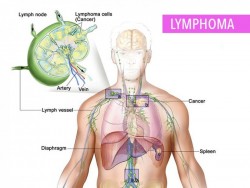
You want what’s best for your heart. And it’s simpler than you might think. These lifestyle changes can help prevent a heart attack and heart disease.
Eat to be your best. Add plenty of fruits and veggies, grains, and foods high in omega-3 fatty acids like fresh tuna or herring to your diet. Cut down on salt, saturated fats, sweets, and red meats. Avoid trans fats and food with “hydrogenated” or “partially hydrogenated” ingredients. Variety in your diet is a good way to get all the nutrients you need.
Find a relaxation method that works for you. Yoga, meditation, dedicated time to unwind after work -- these can help keep your stress levels down. Stressful emotions such as anger and hostility may also lead to heart attack risk, so keep calm and be cool.
If you never started smoking, that’s perfect! If you already quit, excellent. If you still smoke, stop. Talk to your doctor to find out what method will work best for you. Even people who smoke fewer than five cigarettes a day can have early signs of heart disease. Start now. In just 1 year you can reduce your risk of a heart attack.
If it’s too high, your risk of a heart attack and heart disease goes up. Stress management, a healthy diet, and regular exercise can help you manage your blood pressure. Your doctor may also prescribe medications to lower your levels.

Too much sugar in your blood can damage your arteries. This happens with prediabetes as well as diabetes. Work with your doctor to control your blood sugar levels. That may lower your chance of having a heart attack or stroke. Remember, you can’t tell if you have diabetes (or high blood pressure, or high cholesterol) based on how you feel.
When blood flows through your blood vessels, it can drop traces of cholesterol, fat, and calcium, creating a buildup of plaque in your arteries. Too much of that plaque makes a heart attack more likely. If you don’t know your cholesterol levels, ask your doctor for a blood test.
One called LDL is bad for your heart. The other, HDL, can help protect you from heart disease. You can improve your levels with exercise and a diet low in unhealthy fats. Some people may also need to take medicine that lowers cholesterol.
If you have extra pounds, it can put your heart at risk. Exercise and a good diet help. Ask your doctor or a dietitian what your weight should be and how to get there.

Talk with your doctor about taking an aspirin every day. In some people, this reduces the risk of heart attack.
If you already have heart disease, ask your doctor if you should consider evolocumab (Repatha). Recent studies show that it can significantly reduce the risk of a heart attack and stroke in people who have cardiovascular disease.
Hit the treadmill or the trail. Walk around the neighborhood or go for a swim. Whatever activity best fits your needs, do it! Regular exercise can haelp prevent heart disease, lower blood pressure, and improve your cholesterol levels.
Stay in touch with your friends and family. Research shows that people with more social support are less prone to heart trouble. As you grow your network and make new friends, know that you might be good for their heart health, too.
 What Happens When You Quit Smoking – A Timeline
What Happens When You Quit Smoking – A TimelineEvery year more than 7 million people die as a result o...
 Types Of Yoga, Which One Is Best For You?
Types Of Yoga, Which One Is Best For You?There are two types of people in the world - those who ...
 10 Amazing Health Benefits Of Apricot Juice
10 Amazing Health Benefits Of Apricot JuiceOriginally from China, the use of apricots began almost...
 This Honey, Lemon And Cinnamon Drink Will Help You Lose Pounds In A Week
This Honey, Lemon And Cinnamon Drink Will Help You Lose Pounds In A WeekThe most effective way to lose weight is to do aerobic ...
 Cheap & Healthy Shopping List for Students
Cheap & Healthy Shopping List for StudentsCheap & Healthy Shopping List for StudentsStaying o...
 What You Need To Know About Lymphoma
What You Need To Know About LymphomaLymphoma is a cancer of the lymphatic system. It affect...
 This Honey, Lemon And Cinnamon Drink Will Help You Lose Pounds In A Week
This Honey, Lemon And Cinnamon Drink Will Help You Lose Pounds In A WeekThe most effective way to lose weight is to do aerobic ...
 Colon Cancer: Could Exercise Halt Tumor Growth?
Colon Cancer: Could Exercise Halt Tumor Growth?New research published in the Journal of Physiology sug...